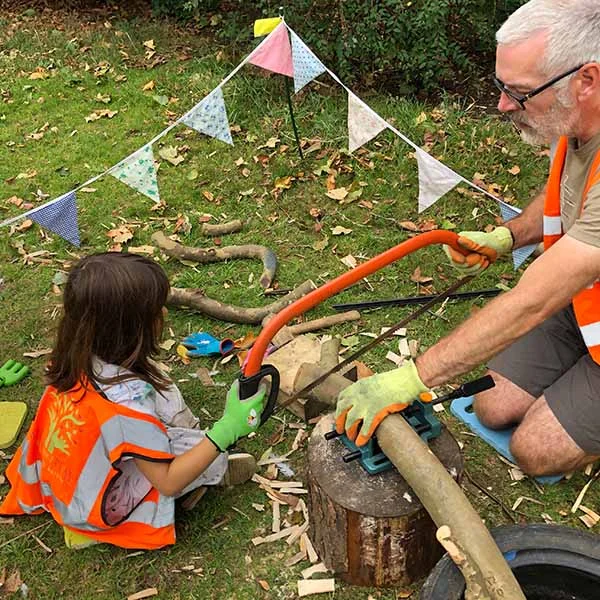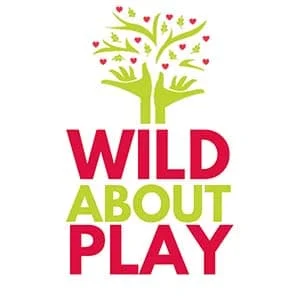EVIDENCE
WILD ABOUT PLAY
Books, blogs, podcasts, people, methods
Here at Wild about Play, we are passionate about play and about creating the right enabling environment for our children’s education and enjoyment. We believe in the power of outdoor education and how it contributes to the development of young minds. There are a myriad of benefits that come from outdoor play and learning – here are just a few;
Physical
Aside from improving physical fitness, studies have shown that children participating in outdoor play are less likely to become nearsighted (Goldschmidt and Jacobsen 2014, Rose et al 2016). Spending time outdoors means that children have more freedom to move around, enabling them the opportunity to develop motor dexterity, balance and coordination. With the time and encouragement to explore, children in forest school settings are more likely to take calculated risks as they have a better sense of self-assessment – this in turn leads to fewer falls and injuries as they already possess the ability of self-control.
Neurological
75% of all mental health problems are established by the time someone is 18 (Children’s Society, 2018). A 2016/17 study carried out at Sheffield Hallam University concluded that life satisfaction and happiness are higher for people who are physically active, and their levels of anxiety are lower. “We now have conclusive evidence that physical activity is clearly linked to mental wellbeing” (Lisa O’Keefe, Sport England, 2017). In addition, studies across the UK have also shown that even 5 minutes of exercise and play in an outdoor environment can rapidly improve self-esteem and mental health and wellbeing in young people. Outdoor play with friends encourages collaboration and understanding, allowing children to learn when to take turns and become attuned with each other’s moods. This in turn gives the children the opportunity to recognize their own feelings and gives them a safe environment to project these thoughts without fear or embarrassment.
Studies show that “social interaction plays a remarkable role in shaping our brain and behavioural development” (Liu, Solis et al. (2017)), and having the freedom to create and collaborate gives children the autonomy to learn together and have fun whilst doing so. With encouragement and a careful environment set up by our practitioners, our children create their own education usually without even noticing they are learning.
Social
According to a report published last year by McKinsey & Company, the demand for higher cognitive skills such as empathy, critical thinking and collaboration will grow through “2030 at cumulative double-digit rates.” One of the main benefits of unstructured play is the creativity and imagination that is exercised in the sessions. As a group, children are able to problem-solve with the freedom they gain in an outdoor setting with natural resources such as sticks, leaves and mud. As their imagination runs wild, they can collaborate together whilst creating a scenario that engages the reasoning part of their brain and gives them the opportunity to generate trial and error ideas with the confidence that if they fail there are no pressures, only the opportunities to try again.
There have been some wonderful books, research papers and articles, podcasts, people and organisations that have inspired our teachings. Here is a small collection of those;
Books
Kathy Hirsch Pasek and Roberta Michnick Golinkoff’s Becoming Brilliant: What Science Tells Us About Raising Children (The 6 C’s)
Research Papers and Articles
‘Skillshift, Automation and the future of the workforce’ Mckinsey Global Institute Summer 2018
‘Neuroscience and learning through play: a review of the evidence’ The Lego Foundation 2017
‘What every parent needs to know: Love, nurture and play with your child’ Margot Sunderland 2017
‘10 Insights to Enhance the Joy of Learning’, Psychology Today, Scott Barry Kaufman 2012
GET IN TOUCH

